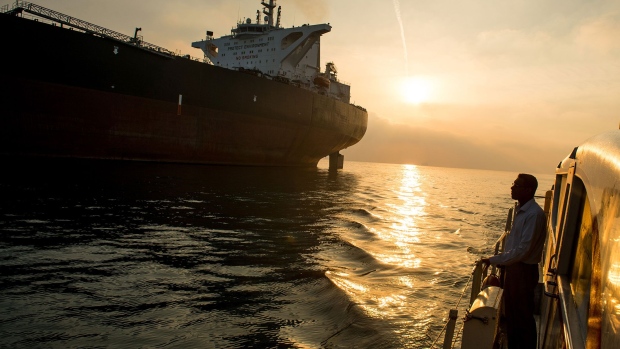Jan 29, 2024
Here’s What Analysts Say About Oil After Middle East Attacks
, Bloomberg News

(Bloomberg) -- A drone strike that killed US troops in Jordan and a separate attack on a fuel tanker in the Red Sea have led to an escalation of tensions in the region key to energy production and global trade.
The White House blamed Iranian-backed militias for the assault on US soldiers, which was denied by Tehran, while Houthi rebels claimed responsibility for the attack on the ship. Here’s what analysts and an Asian oil refiner say about the outlook and impact on the oil market:
Mizuho Bank Ltd.
The oil market “has been exposed to a buffet of supply-side risks,” said Vishnu Varathan, a chief economist for Asia ex-Japan at the bank. “It does appear that even with any softening we’re seeing to demand, geopolitics is shaping up so that oil prices could have more upside risk in them.”
Sanford C. Bernstein
“The biggest wildcard is whether the US and allies decide to take a more forceful action on Iran, where crude exports have increased to 1.5 million barrels a day,” said Neil Beveridge, a senior analyst based in Hong Kong. “Any re-tightening of sanctions could bring about upward pressure on oil prices.”
Rapidan Energy Group
The attack on US troops in Jordan is a “material move up the escalation ladder that should cause the oil market to build in another couple of dollars per barrel of Iran contagion risk,” said Bob McNally, president and founder of the company, and a former White House official.
Vanda Insights
“The question is, why have we not seen Brent shoot up toward $90 or higher?” said Vandana Hari, the Singapore-based founder of the company. “There would need to be a direct hit on a Middle Eastern oil cargo or oil production infrastructure for prices to skyrocket.”
Global benchmark Brent crude jumped as much as 1.5% in early Asian trading before paring most of those gains to trade near $84 a barrel.
Again Capital LLC
“None of the actors want a full-blown war,” said John Kilduff, founding partner of the company. “The oil is still flowing, no oil fields have come in the crosshairs and we’re still seeing vessels going through into the Suez Canal. If there are any signs of tensions easing,” prices will pull back, he added.
SK Innovation Co.
Freight and insurance costs will rise further if Houthis continue targeting oil tankers, said a spokesperson for South Korean refiner SK Innovation, who asked not to be named due to company policy. The processor said it’s currently not using the Red Sea route to source oil cargoes.
--With assistance from Grant Smith.
©2024 Bloomberg L.P.






